November 1758 (265 years ago)
In the U.S. colonies, stock theatre companies needed the permission of the government (the Royal Governor, colonial assembly, or city magistrates) to perform. Unfortunately, the American Company, led by David Douglass, was barred from performing in New York in 1758, though they had built a theatre for that explicit purpose. On Nov. 6, Douglass made an appeal to the public through the Newport Mercury for his company, in response to the “positive and absolute denial” of New York bureaucrats. With Douglass promising to “open a HISTRIONIC ACADEMY” that would offer “dissertations on subjects moral, instructive, and entertaining,” city officials relented, allowing Douglass’s American Company to present 13 evenings of shows. William Dunlap, writing in 1832, argues that this debacle was related not to the obscenity of Douglass’s company but to the fact that Douglass had built his theatre in New York without obtaining permission from the magistracy first, which “no doubt offended dignity [that] had determined before his arrival to punish him for neglecting those ‘boos’ which the patron exacts from the patronized.”
November 1863 (160 years ago)
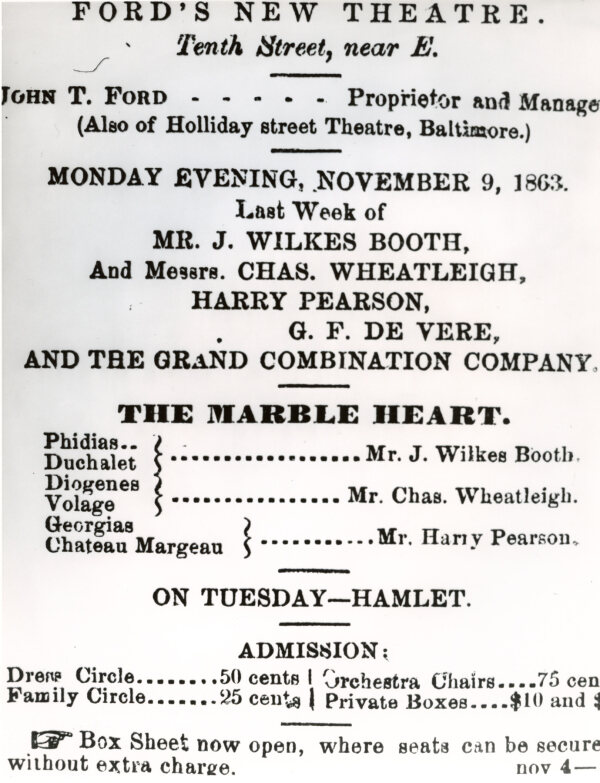
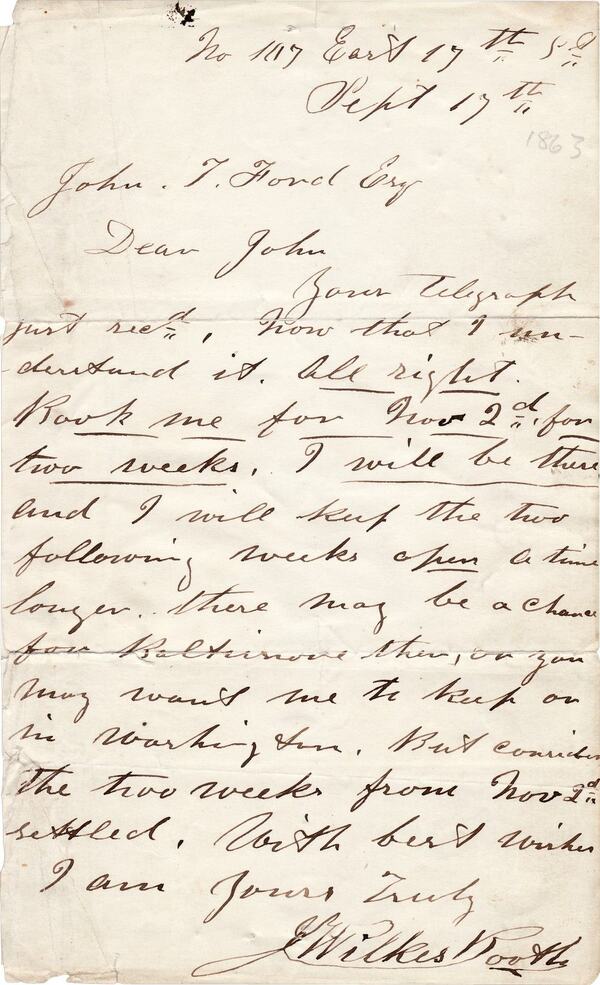
On Nov. 9, 24-year-old John Wilkes Booth performed in The Marble Heart by Charles Shelby. The play was produced at Ford’s New Theatre, a 1,500-seat venue which had recently reopened following a fire that destroyed the theatre’s facade. While Booth appeared in seven plays at Ford’s Theatre between Nov. 2-15 that year, his performance on Nov. 9 is notable in that it was seen by President Abraham Lincoln. Booth, a pro-slavery sympathizer of the South, wrote to his sister, professing that he was a spy among the Union armies and gathered intelligence that he relayed somehow across the Potomac River to the South. In 1864, Booth made a desperate plan to kidnap President Lincoln, though that scheme fell apart before any action was taken. On April 14, 1865, Booth shot Lincoln in the back of the head while Lincoln sat in the same box from which he had watched Booth perform in The Marble Heart.
November 1918 (105 years ago)
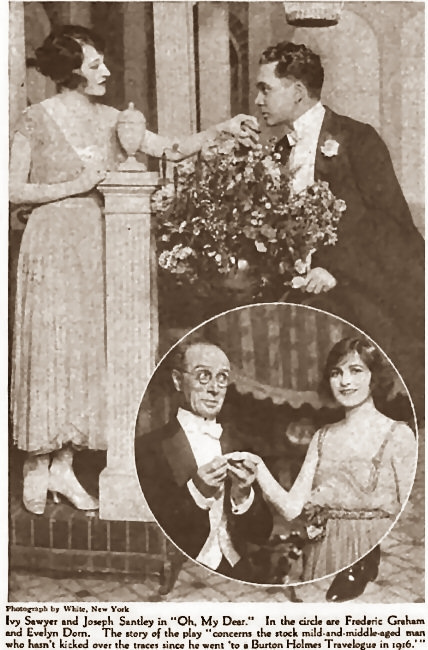
Oh, My Dear! opened at Broadway’s Princess Theatre (299 seats, on West 39th Street) on Nov. 27. Oh, My Dear! was the last of the “Princess Theatre” musicals written by the creative team of Jerome Kern (music), Guy Bolton and P.G. Wodehouse (book and lyrics). Bolton and Wodehouse, British authors, teamed up with the American Kern to create musicals that would be relatable to their American audiences in an intimate space. The “Princess Theatre” musicals included Very Good, Eddie (1915), Oh Boy! (1917), Leave it to Jane (1917), Oh, Lady! Lady! (1918) and Oh, My Dear! These shows avoided disjointed vaudeville spectacle and integrated the silliness of British operetta with stilted but ordinary American characters. Perhaps most significantly, working on the “Princess Theatre” musicals developed Kern’s interest in creating shows that integrated story and song, which he would do most profoundly with Oscar Hammerstein II in 1927 with Show Boat.
November 1938 (95 years ago)
Amoríos borincanos, the last dramatic work of Gonzalo O’Neill y Santana, opened on Nov. 25 at El Teatro Hispano, the most significant Hispanic stage in New York. O’Neill y Santana was a Puerto Rican nationalist, businessman, and poet most well-known for his plays Pabellón de Borinquen o bajo una sola bandera (1929) and Moncho Reyes (1923), both of which supported the Puerto Rican nationalist movement. He was also an investor and comptroller for El Teatro Hispano beginning in 1937. O’Neill y Santana is remembered as a literary godfather for Puerto Rican migrants, and while his career began as a romantic poet, the majority of his work focused on his intense patriotism and commitment to decolonizing Puerto Rico.
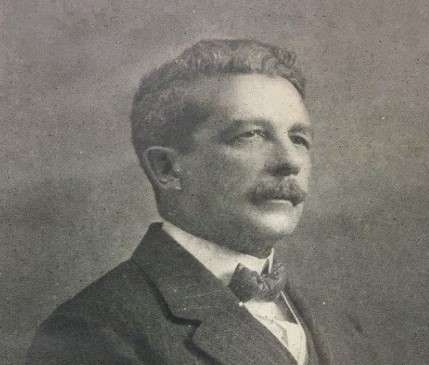
November 1953 (70 years ago)
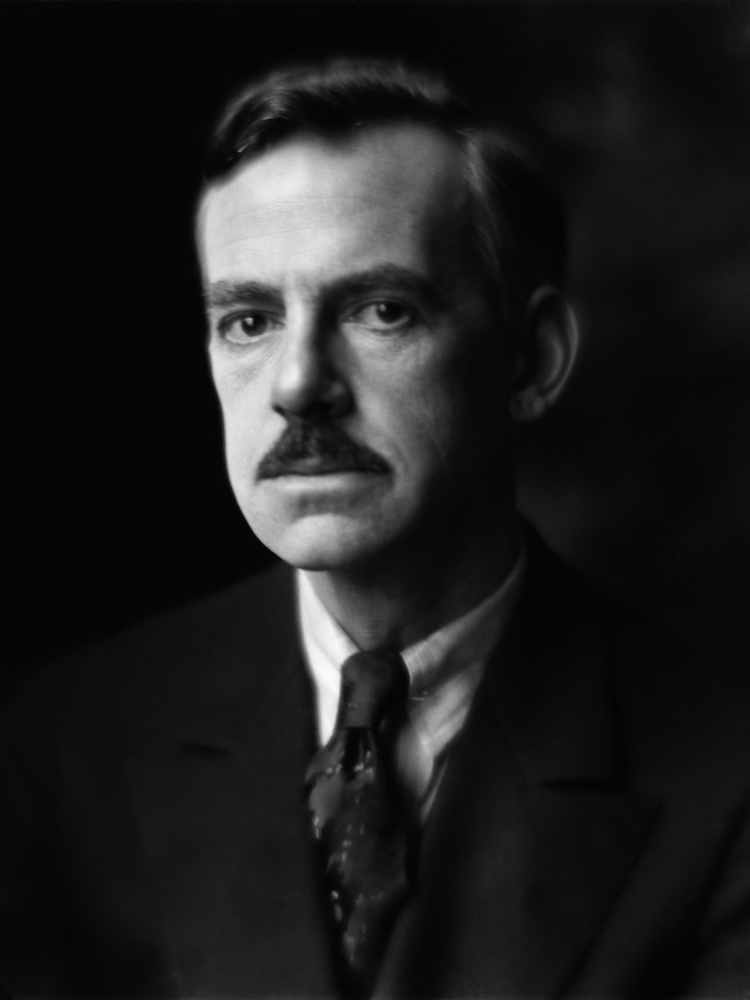
Following an extended health crisis that consumed much of the last fourteen years of his life, Eugene O’Neill died at the Sheraton Hotel in Boston on Nov. 27th at the age of 65. By the time O’Neill entered the last stage of his life, he had already achieved great things. He was a pioneer of U.S. realism, and had received the first Nobel Prize for Literature awarded to an American dramatist (1936) and three Pulitzer Prizes (Beyond the Horizon (1920), Anna Christie (1922) and Strange Interlude (1928)). Beginning in 1939, when he was 51 years old, O’Neill began to experience problems writing, due to powerful tremors in his hands and neurological trouble that is now believed to be the result of a rare genetic disorder. Some of his best plays were, however, written during this latter section of his career. Long Day’s Journey Into Night, O’Neill’s most well-known and most autobiographical play, was written while he had trouble controlling a pencil in 1941. Two years later, he completed his final play, A Moon for the Misbegotten, a sequel to Long Day’s Journey into Night. O’Neill received a posthumous 1957 Pulitzer Prize for Long Day’s Journey Into Night, and Moon for the Misbegotten has enjoyed five Broadway productions since 1957.
November 1983 (40 years ago)
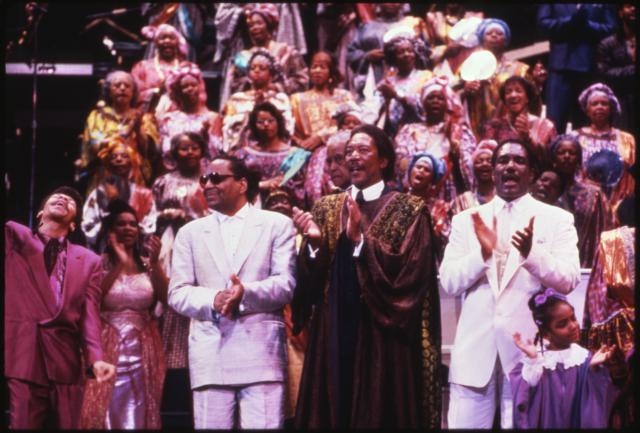
The Gospel at Colonus, created by experimental theatre director Lee Breuer and composer Bob Telson, opens at the Brooklyn Academy of Music’s Next Wave Festival. This musical adaptation of Oedipus at Colonus would go on to have productions at Arena Stage in Washington, D.C., in 1984, American Music Theater Festival in Philadelphia in 1985, and at the Alliance Theatre in Atlanta in 1987. Morgan Freeman, Carl Lumbly, the Soul Stirrers, and the Blind Boys of Alabama eventually joined the cast. It premiered on Broadway at the Lunt-Fontanne Theatre in 1988. The Gospel at Colonus was a finalist for the 1985 Pulitzer Prize for Drama, and Hilton Als, writing for the New Yorker, described its original 1983 production as “a portrait of Black life—of Black music, joy and pain—that I could understand.”
November 1993 (30 years ago)
Angels in America: Perestroika, written by Tony Kushner and directed by George C. Wolfe, opened on Broadway at the Walter Kerr Theatre on Nov. 23, 1993. It joined the first part of the play, Millennium Approaches, which had been playing on Broadway since May 4. Angels in America is a seven-hour epic with eight acts frequently described by people like New York Times critic Charles McGrath as “arguably the most important play of the second half of the 20th century.” Angels in America was originally commissioned by the Eureka Theatre Company in San Francisco by Oskar Eustis and Tony Taccone, artistic director. Kushner developed Perestroika through readings at Eureka in 1991 and at the Mark Taper Forum in May 1992. Perestroika enjoyed its first production in November 1992 at the Mark Taper Forum, directed by Eustis and Taccone. After its Broadway premiere, Perestroika won the 1994 Tony Award for Best Play and Drama Desk Award for Outstanding Play. Perestroika was still developing, however, and Kushner made official revisions to the play in 1995, 2010, 2013, and 2018. “It’s not that there’s anything wrong with it,” Kushner says. “I think it’s just a play that will always be available to a certain degree of moving things around.”


